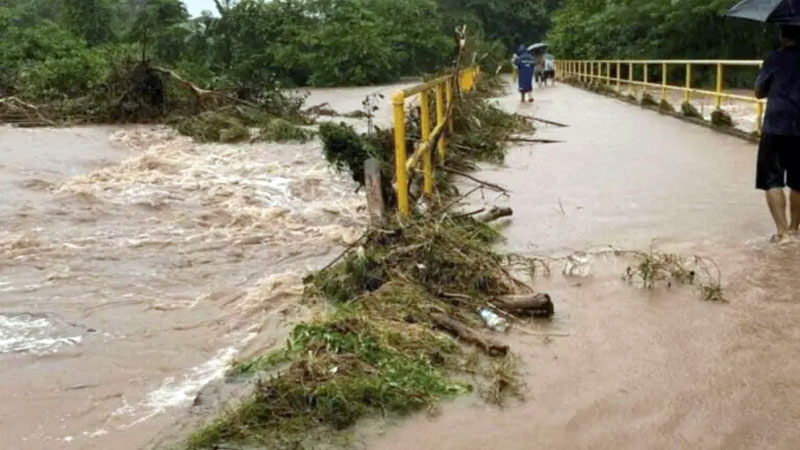Exclusive content

Shrimp producers in southern Honduras are grappling with significant challenges. Amidst unrelenting rains, local farmers find themselves battling both natural disasters and economic uncertainty, with floods and an unfulfilled promise of international markets wreaking havoc on their livelihoods.
Drowning in Rain: Shrimp Farms Submerged
The persistent downpours across southern Honduras have inflicted severe damage on the region’s shrimp farms. Producers are already dealing with the aftermath of floods, which have devastated production capacities and threatened the financial stability of many. Wilmer Cruz, a local shrimp farmer, captured the gravity of the situation, noting that climate change has compounded these challenges. “First it was the tides, now the rains, which have flooded several farms; some have overflowed, and we have lost all production,” he lamented.
Currently, 18 farms have been affected, with ten suffering total losses. The economic toll is mounting, as producers are now struggling to meet their loan obligations—financing they had previously secured to maintain operations. For many, the inability to recover from such setbacks signals a crisis, one that threatens to engulf the entire sector.
Exporting to China: A Broken Promise
Even as farmers struggle with the physical damage caused by the rains, they face another crisis in the form of blocked access to international markets. The diplomatic rift between Honduras and Taiwan has closed off lucrative export routes, leaving producers to rely on a newly announced trade deal with China. However, that avenue has proved disappointing.
Despite government promises of a massive shrimp export to China, reality has not lived up to expectations. Producers like Wilmer Cruz have reported that Chinese buyers offer prices so low that they barely cover the costs of production. “We continue to be affected by the cost of shrimp, which has fallen to the point where we do not even cover the production costs,” Cruz said, highlighting the frustration shared across the industry.
A Market Misled
The promise of China as a booming market for Honduran shrimp has turned out to be an illusion. Many producers feel betrayed by the government’s assurances, believing they were sold false hope. “We were sold an idea of the Chinese market and it was a farce,” Cruz said. Farmers are now stuck with shrimp they cannot sell at reasonable prices, and the local market offers little relief. The low prices proposed by Chinese traders have left them questioning the benefits of this supposed export breakthrough.